Of Money and Men: Emily Ratajkowskiin Conversation With Amia Srinivasan
“I have so much anxiety about this,” says Emily Ratajkowski from the floor of her Manhattan apartment. “Even my body has responded to the desire to know how this book will be received.” Ratajkowski has long since come to terms with relinquishing control over her image, but for the 30-year-old San Diego native, the project of removing her body from the conversation has been a challenging one. After more than a decade spent embodying what many—Ratajkowski included—would say is an impossible beauty standard, the model and businesswoman has endeavored in recent years to shine light on the toxic aspects of an industry that long held her up as the epitome of female sexuality. Last fall, she published an essay about her experiences with on-the-job assault and exploitation, naming a prominent photographer in the process. The essay sparked seismic reactions—both positive and negative—in the fashion and art worlds. But instead of dwelling on the public’s reaction, Ratajkowski, a new mother, has done her best to focus on the process of creation.
My Body, Ratajkowski’s recently released book of essays, is the latest step in this process. Over 12 essays—concerned less with her body itself than with its status as an object of fetishization—Ratajkowski confronts with unflinching frankness topics like shame, solidarity, and the search for male validation in a culture that often confuses exploitation with empowerment. The result is a book that, in the opinion of the philosopher Amia Srinivasan, opens itself up to just about anyone—teenage boys and feminist scholars alike. “I’ve always been drawn to sparse, unpretentious writing,” Ratajkowski says. “The purpose of an essay is to get to the root of something, to investigate it.” To mark the release of My Body, Ratajkowski joined Srinivasan over Zoom for a discussion about money, the myth of being a muse, and what it means to raise a son in today’s world. – MARA VEITCH
———
EMILY RATAJKOWSKI: It’s so nice to meet you!
AMIA SRINIVASAN: It’s really nice to meet you too, congratulations on the book!
RATAJKOWSKI: Thank you. I’m such a huge fan. I love The Right to Sex.
SRINIVASAN: I read your book in one sitting and it reminded me of something Marilyn Monroe said in her final interview. She said, “Like any creative human being, I would like a bit more control.” It seems to me that this theme of power and control is maybe the central theme of the book? It runs through all 12 essays. When you choose to take off your clothes or post an Instagram photo of your ass, is this an act of control? Is being able, so successfully, to make men want you, to understand what men want and play on that desire, a form of power? Or are all of these things just simulacra of power and control? My sense is that you give a pretty ambivalent answer to these questions. On one hand, you rightly condemn those who criticize you and other women for capitalizing on their beauty. And you acknowledge that the way you look has given you a certain form of power. But in the book, you tell these stories again and again of realizing that the real power lies with men. The men who direct, film, and manage you, who own the companies and production houses, and who so often treat you as fungible and stupid, simply a body to be sold, consumed, and unfortunately occasionally assaulted. Again and again, you express contempt for the control that these men exercise, and a longing for more creative power. Someone, as you say, who might make a movie one day, rather than get naked in one. Do you think that this is a fair assessment, and to what extent was power and control at the forefront of your mind as you set out to write the book?
RATAJKOWSKI: I didn’t know that Marilyn Monroe quote but it’s interesting that she was talking about control, because even when I believed in choice feminism in my early twenties, and believed in the power that I had as somebody who had worked the system, I definitely didn’t feel in control very often. Instagram was one of the places where I first experienced feeling some kind of control, because I was the one who was able to choose the images and put them out. I could go into a whole thing about my relationship to the internet and women and control. I think it’s something that is at the forefront of our cultural conversation right now, around Only Fans and revenge porn and maybe even related to crypto and NFTs and the free internet, but that’s a separate conversation. When I was writing the book, I knew that power and control were huge topics for me, but it wasn’t, “This is a story about power and control.” It was more like, “This is a story where I have a lot of shame, and a lot of complicated feelings about how I acted.” But, maybe there’s something there that is related to these ideas. I experienced what the double-edged sword was like—wearing something tight to school and then realizing that the popular girls weren’t paying attention to me because the boys were paying attention to me, while also feeling my vice principal snapping my bra strap. So much of what women experience is this feeling of, “I’m the one seducing, I’m the one who’s getting this attention, so I have the power.” But it wasn’t until I got older that I was able to look at these experiences that have stuck with me and think about control, and through thinking about control, think about power.
SRINIVASAN: What was so fascinating about the second essay, which is about “Blurred Lines,” was the way you focus on the means of production of it. It was a production run by a woman, mostly staffed by women, and you were with two other women models. You felt playful and in control; that no one was asking you to do things you didn’t want to do. And you were working, and as a work experience, it felt pretty positive. What I like about that so much is that you make a move here that a lot of women who work in sex work make, which is actually a fundamentally Marxist move. It’s to say, “Don’t just fixate on the representation, the thing that comes out and that you see, and ask about the gendered meaning of that. Also think about what goes into the production of it and the making of it.” But then of course there’s a shift, and you talk about this really awful moment when a mediocre pop star feels entitled to put his hands on you, and everyone freezes and no one can really say anything. It’s one of these moments of puncturing, where it turns out that he’s fundamentally in control.
RATAJKOWSKI: Absolutely, especially in relation to sex work, I relate to it a little bit in the way that all of these women are using their bodies and compromising and also finding power, potentially. That essay in particular is really about industry, capitalism, and commodification, because I had approached modeling as a job. I was only interested in the money that I could make. I knew that there was potentially other power with becoming famous or becoming an image of a beautiful woman and what that represented. I grew up in the early aughts, and I’d seen what powerful women looked like. To me they were Britney Spears, and then there were powerful men who were presidents. That was sort of my understanding. So of course I wanted that, but I’d really hardened myself and thought, “I’m never going to have that kind of power, so I’m just going to make as much money as I can.” That meant often, as I write in the book, feeling like a mannequin, working with men who were maybe twice my age and stripping down and turning into their fantasy. “Blurred Lines” was this experience where a bunch of women asked me how I felt. Did I like makeup? Did I like my hair? I let myself relax and enjoy myself on that set. I think it’s one of the reasons that the music video had the success it did, because it isn’t just girls pouting. There’s a silliness to it and that’s a reflection of how I felt on set. The part where the power dynamics became clear was one that I had buried. I found it humiliating and incongruent with what I wanted to believe and feel about my position in the world. Ultimately, when I first wrote an early draft of this, the experience was buried inside of another essay, because I didn’t want it to be “the ‘Blurred Lines’ essay.” Then I realized that it needed to be its own.
SRINIVASAN: You were in an impossible position. You either hide it or bring it up. No matter what, the revelation, which is handled with such subtlety and care, would generate the kind of headlines it has. Like in The Sunday Times, which is a terrible right-wing newspaper. You’ve seen the headline.
RATAJKOWSKI: Not only the headline, but the images have been pictures where my breasts are exposed, and it says, “Emily Eroticakowski Accuses Robin Thicke of Sexual Assault.” It’s such a diminishing of what I actually wanted to say. Even having people approach me and say very kindly, “It’s so wonderful you spoke out,” is kind of missing the point of the essay. I’m looking forward to people being able to read and, I hope, understand why I decided to write it and what the point is of sharing that experience.
SRINIVASAN: If it’s any consolation, another terrible right-wing British newspaper described my book with the headline “‘The Right to Sex’ by Amia Srinivasan: Soviet-Style of Sex Reeducation.”
RATAJKOWSKI: Wow, that actually does make me feel better. [Laughs]
SRINIVASAN: A lot of people experience that kind of mistreatment, especially women who want to think about questions with nuance and ambivalence. A lot of the mainstream press can’t handle that. You expressed a hope that people will actually read the book as you wrote it: a set of complex, ambivalent, sometimes funny, very sharp, and also cold and dark meditations on representation and sex, embodiment, and capitalism. But you also expressed anxiety in the book that you won’t be taken seriously, because women who look like you in particular, and who also capitalize on how they look, are especially not taken seriously. I wonder how confident you are that you are going to be read properly, or are you going to still be read through a lens of male sexual fantasy?
RATAJKOWSKI: I have so much anxiety about this. I’ve lost a bunch of weight in the past month because I’m concerned and scared. My body has actually responded to the desire to how this book will be received and it’s a continuation of the metaphor. But something that I think the book could be criticized for and I totally understand is that I don’t give a lot of solutions, and I can often be cynical. What I’m about to say is not cynical and kind of positive, which is that ultimately, I write about being a muse versus an artist. I didn’t even realize that it was such a large part of the book. In some ways I wish that I had written more about it, but also I have realized that the book is a relic that is about creation and about the muse taking back power and becoming the artist. The act of writing the book has been an attempt at control, but ultimately, you have to release control in order to be happy and just to survive and exist in a meaningful way. I think, with publishing it and knowing that there’s this huge risk of people not reading it at all, and only looking at the headlines, I have to focus on the act of creating the book and the fulfillment that it’s given me, which is really all I ever wanted.
SRINIVASAN: Let’s talk about the shift from being the muse to the artist. I’m interested in the process that went into the actual writing of this book. It’s a very finely honed and controlled literary object. Your prose is spare, often cold, especially when you’re describing moments of male creepiness and assault. It reminds me of early Bret Easton Ellis, that same cold description of a certain toxic superficial culture. But in its places of coldness, it’s very affecting. You also do this very intricate interweaving of different temporal moments and different narratives. In the essay called “Toxic,” you’re interweaving this discussion of Britney Spears with the account of this high school almost-friendship. Then in “Beauty Lessons,” which opens the book, you’ve got this series of numbered vignettes about your childhood formation, your relationship with your mother, beauty, loveability. Can we talk about the craft of essay writing and what it’s about for you?
RATAJKOWSKI: I’ve been an avid reader my whole life, and it was one of the reasons I didn’t write more, because I had so much respect for wonderful writing that I felt like, “Why attempt, why not just appreciate?” I’ve always been drawn to sparse, unpretentious writing. Flowery language doesn’t really interest me. It covers it up. It’s often difficult to be very direct and not flowery because you really have to figure out what the fuck you’re saying. I have so much respect for people who are good at that, especially in essays, because the idea of an essay is to get to the root of something, to investigate it. That was what started the writing. It was not just, “I’m going to write a book,” but more feeling like I wanted to explore experiences and ideas that I couldn’t verbally lay out or organize. I would start on a note in my phone and that was really helpful, because once you start writing inside of essays, you can lose the stream of consciousness that you want to have. You do that particularly well. I think Leslie Jamison also does that really well, where you feel her mind working in the writing, which is very difficult because anyone who’s written knows that once you edit, you’re completely lost in the sentences and you lose the larger shape. So the notes thing allowed me to jump from one idea to the next. And as somebody who has grown up in the age of the internet and enjoys reading long books but can have a short attention span, I appreciate the way you can pick up and put down a book of essays.
SRINIVASAN: Can we talk about money?
RATAJKOWSKI: Yes. I love talking about money.
SRINIVASAN: You describe why you first got into modeling, and it’s because of money. You immediately contextualize it within the 2008 financial crash, which was so formative for people in our generation. You were watching peers moving back home and picking up the service jobs they had in high school, but you didn’t want to do that. Modeling was something you were already doing, but then you went full gung-ho into it. It reminds me of a move that, again, a lot of sex workers make, which is that whenever they write about sex work, they remind people that it’s something they do for money. And the reason you have to remind people is it stops the pathologization of a certain form of activity, because otherwise, people ask, “Why are you taking your clothes off, why are you uploading so many selfies?” Well, it’s a way of making money. It’s only when you forget about money and the broader capitalist system in which we operate that things start to appear pathological.
RATAJKOWSKI: Yes, and that was so important to me because there’s shame around, or at least I felt shame around, being money hungry. Autonomy and freedom and control come with money, and I knew that at a very young age. Nothing terrified me more than watching my friends who went out into the world have to return and give that up. My parents come from the generation where you go to college and get a decent job. Student debt wasn’t really on their mind. When I was a senior and I was deciding to go to UCLA, I took a job at a store. I thought, “I’m going to stop modeling now, and I need to get used to making this kind of money and have some experience in a real situation that I can bring to a place in L.A. and say I’ve actually worked. And I hated it. So even though modeling has all these things about it, I’d rather do it. Everybody also always reminded me that modeling has a very specific window and that if you don’t do it when you’re young and beautiful, it goes away. So I made the decision to jump on that, directly into an industry that when I got sick with the flu and lost some weight, I watched the number on the scale go down and the number of my paychecks go up. So all of a sudden I became hyper aware of how to have more. It’s kind of another conversation for a different book, but when do we start saying, “I have enough financial security, so I’m not going to compromise myself in certain ways because I feel safe and secure?”
SRINIVASAN: You said it’s a topic for another book, but that was actually the question I was going to ask you. When is it enough money?
RATAJKOWSKI: I’m wrestling with that. I write about the experience of being around really rich men. I’ve seen what real money looks like and what kind of lifestyle that guarantees. But I have noticed, and since writing this book, that I feel much more comfortable saying no to things. The money is, to me, still shocking.I kind of can’t believe what I’m offered for my actual time.
SRINIVASAN: One of the suggestions that comes through in “Beauty Lessons” is that there’s money and there’s the very real material drive for money, but there’s also for you and for many women, the internalized misogyny that results in a constant drive for male validation. You talk about how that’s inflected through social media, like the actual oxytocin hit, and I was amazed to find that you get an oxytocin hit off of an Instagram like. People who get like 10 Instagram likes definitely do, too, but it seems like the particular relationship that you were brought up to have with your beauty where you think that you’re lovable insofar as you’re beautiful, is expressed writ large by social media. So there is a sense in which that is what love is now. Love is how many likes you can have. How easy would it be for you to separate yourself from that economy of validation?
RATAJKOWSKI: I’ve started to, and it’s strange unlearning the ways that I understood love and specialness. I lost the distinction between the two, as a young person. That was true of my upbringing, and then I became a famous model with this instant feedback loop of specialness of lovability. It was spooky when I figured out that parallel. What I’ve learned, even just writing this book and why I dedicate the book to my son, is that the way that I’m actively trying to relearn what love and lovability can be is my attempt to be the best person I can be and, ultimately, the best mother. But it’s an ongoing process, because validation like that is really powerful.
SRINIVASAN: What do you think about the economy of validation and desirability in the literary world?
RATAJKOWSKI: I’m terrified. I think it’s going to be really interesting, too. I’ve already sort of dipped my toe in it and it’s a whole other thing.
SRINIVASAN: One thing that’s really bracing about the book is that it’s filled with creepy, shitty, abusive men. Not all of them, you do have good men in your life. But you have this extraordinarily intimate knowledge of male shittiness, of patriarchal sexuality and masculinity. The book ends with an essay on giving birth to a son. What does the project of raising a male child look like to you?
RATAJKOWSKI: When you said “good men in your life,” and you write about this as well, I think there just aren’t good and bad men. Yes, it’s not all men, and at the same time, it’s all men. In the same way that women are existing in the world that we exist in, there’s moments where any man can, always with ignorance, but whether knowingly or not, take advantage of the power dynamics that we so often ignore. My son, babies, have this genderless quality to them, and so I love affording that to him right now. I’ve just been treating him as this wonderful little human who’s being introduced to the world. Actually, I noticed that as soon as people know that he’s a boy, the way that they interact with him is different than they would have with a baby girl. Sometimes I feel frustrated by that because I think there’s even a tendency to throw a little boy in the air, be a little bit rougher with them than you would a little girl. That stuff already bothers me because I can see where it’s leading. I don’t have the answers, but the second that I knew I was having a son it came to mind. The best I can do is teach him compassion, and about these power dynamics that men don’t have to inspect in the way that women do, and make him aware of them and make him care about them. How’s that going to happen? I’m not entirely sure. I also think that this culture that I’m writing about in the book, is very bad for men. There are books about how bad it is for men. I see it in my life, the ways that it limits men, and how depressing their existence and their lives can be when they have to adopt this toxic masculinity. So I also feel incredibly protective of him in the same way I would with a daughter, from this culture.
SRINIVASAN: So many of the men you described in the book have a profoundly desperate quality to them. So while they might be exercising a huge amount of power, usually decision-making power backed by money, there’s also clear anxiety about their own masculinity, their place in the world, their desirability. They feel female desirability as this profound threat to their supposed mastery. And I totally agree with you, I think feminism that isn’t interested in the complexities of the distorting effects of patriarchy on the male psyche is not really feminism worth having. I want to recommend a book to you, which is usually the book I give to my friends when they get pregnant. It’s Adrienne Rich’s Of Woman Born.
RATAJKOWSKI: I know Adrienne Rich but I haven’t read that book.
SRINIVASAN: It’s my favorite of her books. She was the mother of two sons and it’s pretty much a meditation on that question, but in a profound and poetic way. It ends with this extraordinary image of what it means to set your son down on the shore of a river and cross that river and leave him there having the confidence that he’ll be able to follow. And how that possibility really is the most politically emancipatory thing we basically need to do: allow men to learn how to accept both that they have been radically dependent on women, but also to grow up.
RATAJKOWSKI: I’m crying because it’s so difficult and scary and sad to watch. Actually, one of the early reviews somebody wrote about the book was that these men had jealousy, there was a sort of jealousy of power, a threat of the validation I could give them or that a beautiful young woman could give them. I feel like that is the source of that, and it’s something bell hooks writes about so well. I thought the book you were going to recommend is Men, Masculinity, and the Will to Change. That book is wonderful in being compassionate towards men but I do think that so many of these things that I’ve experienced have come out of real fear and a need to prove something. I do feel incredibly empathetic towards that and am aware of it.
———
INTERVIEW


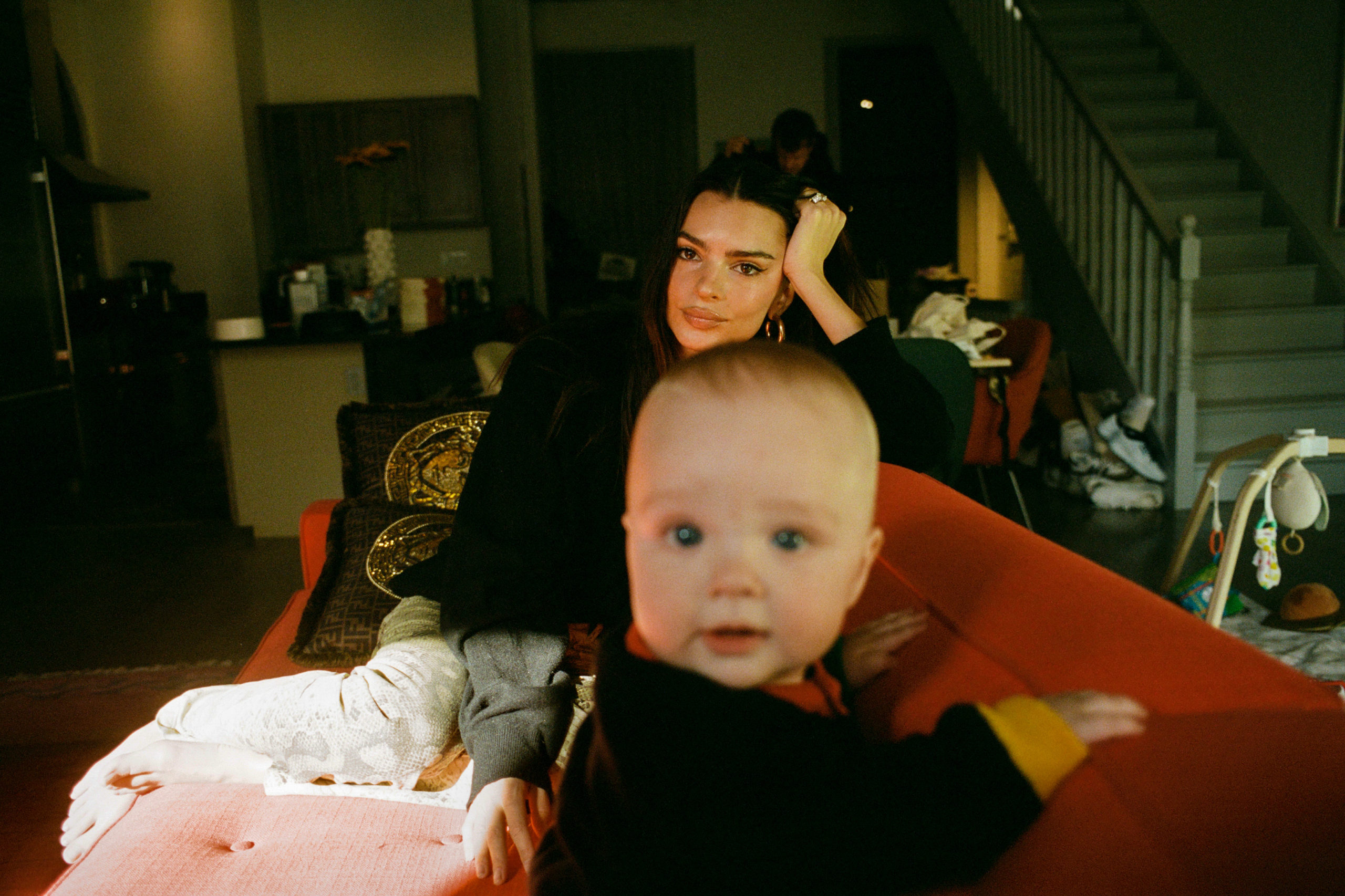


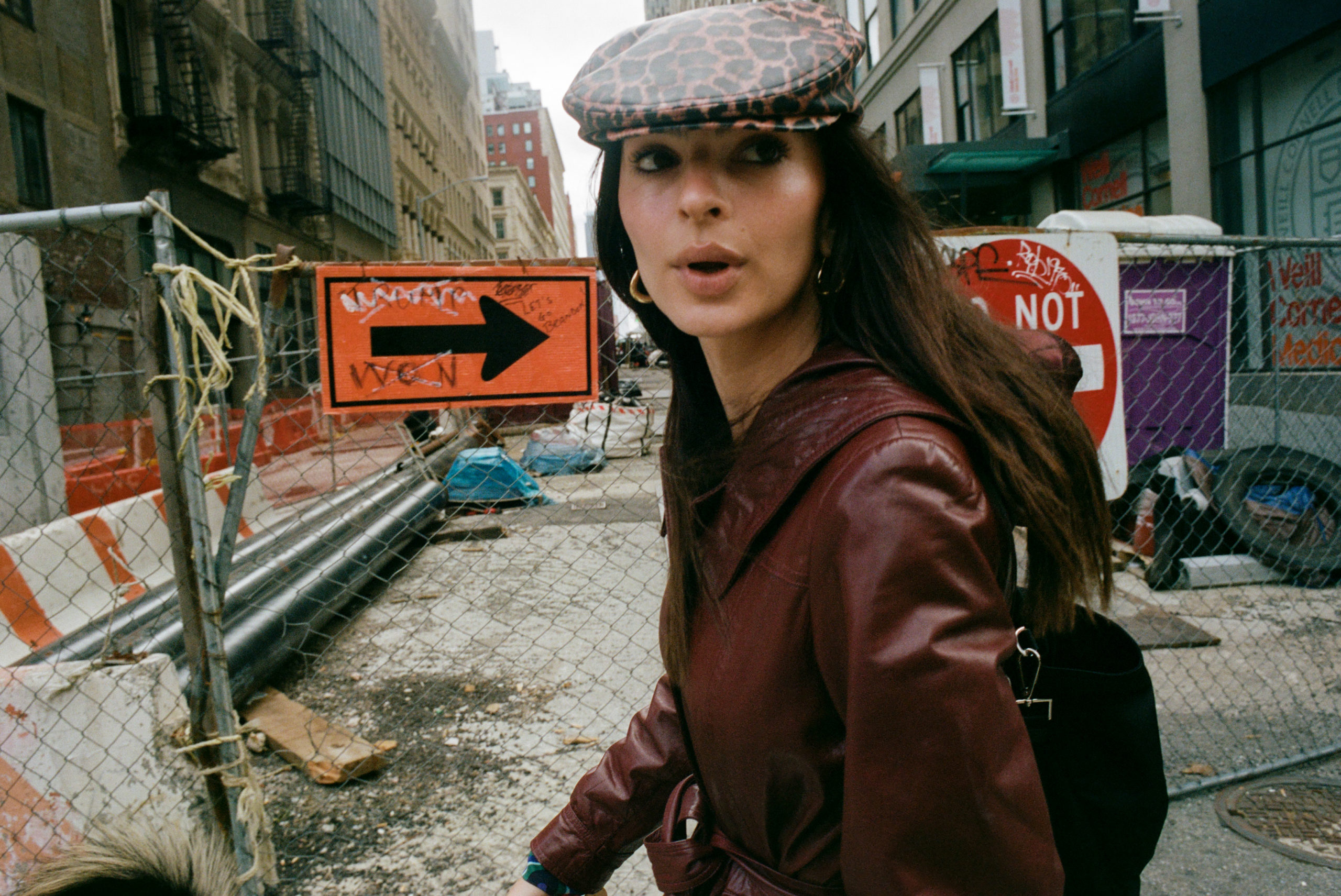
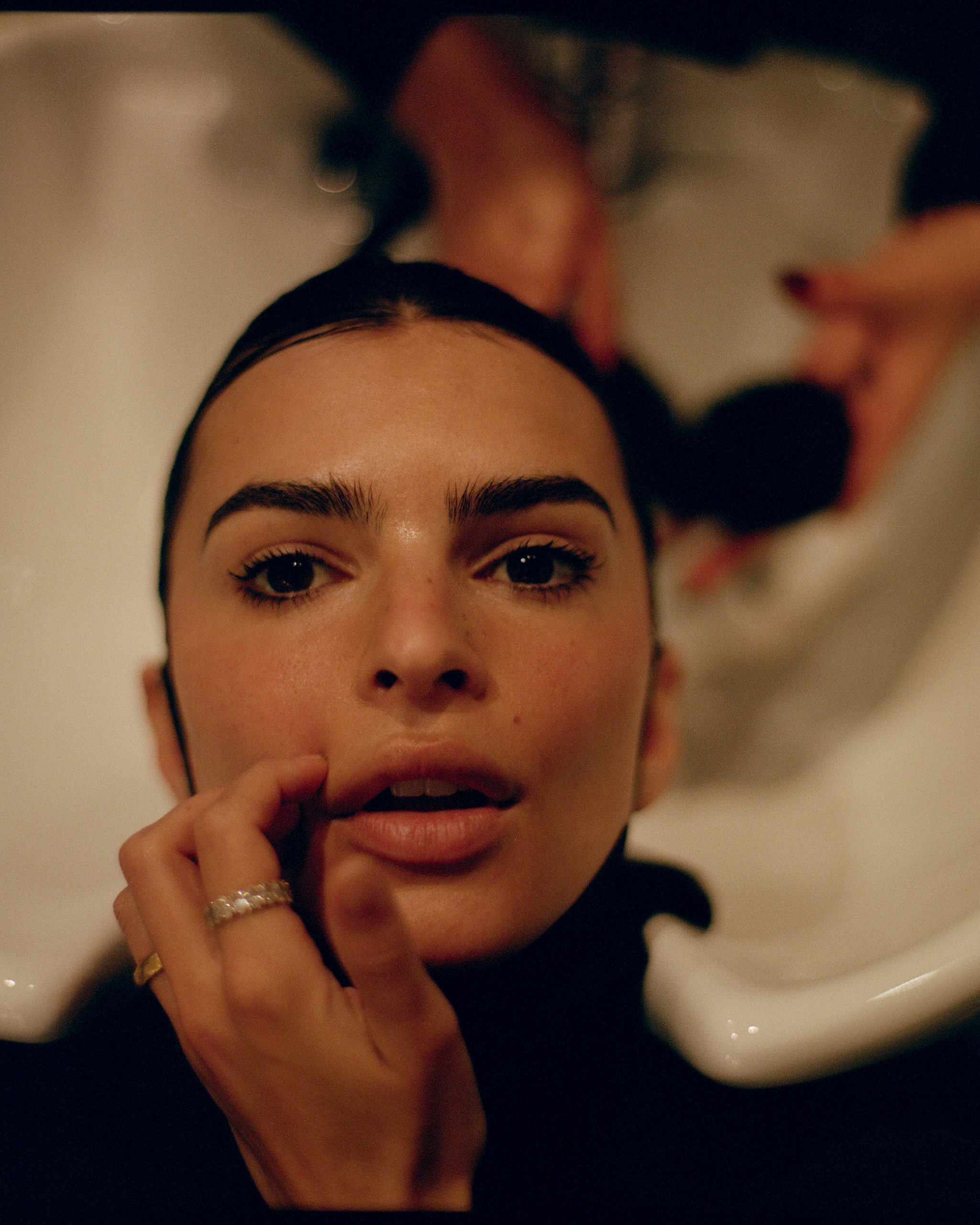
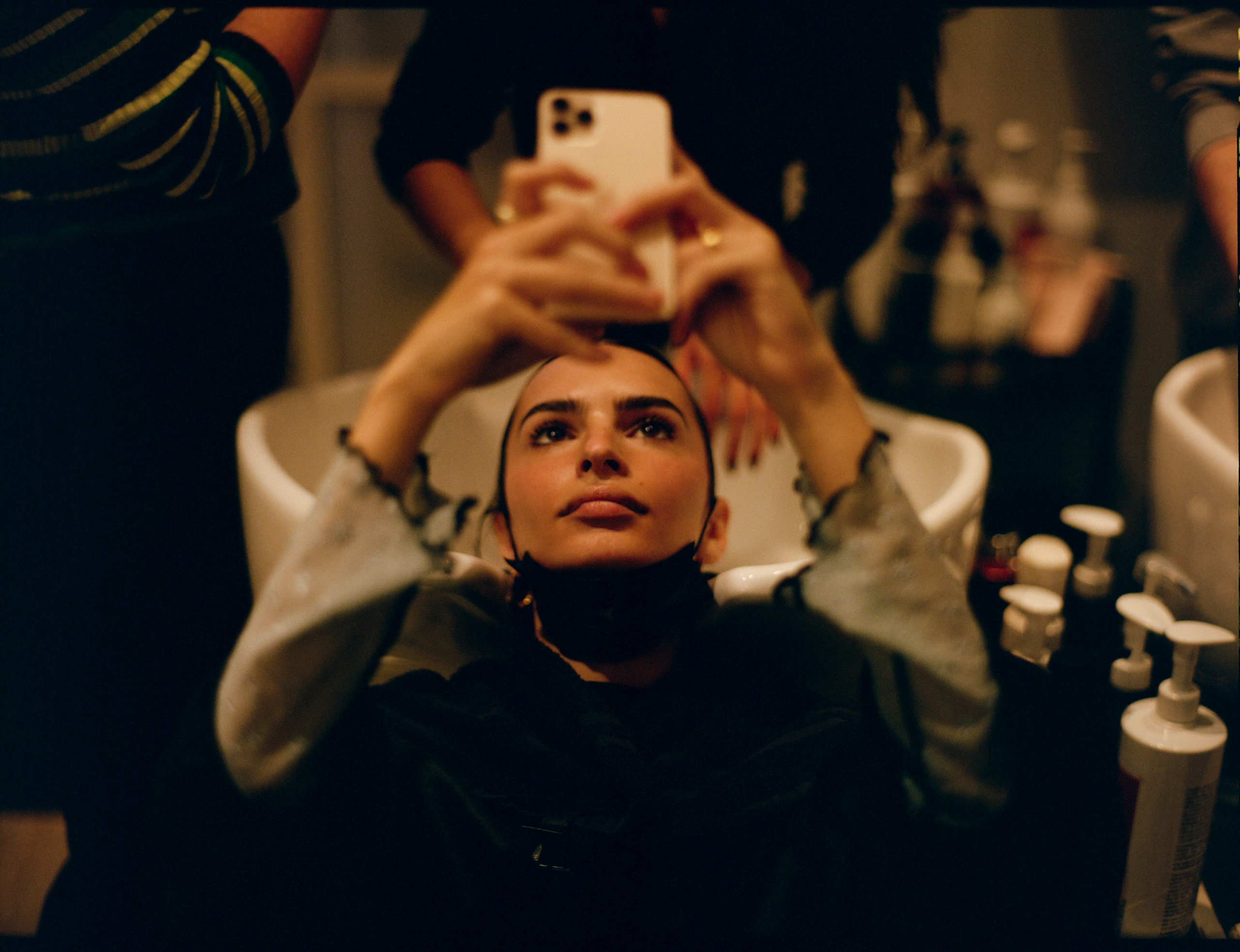
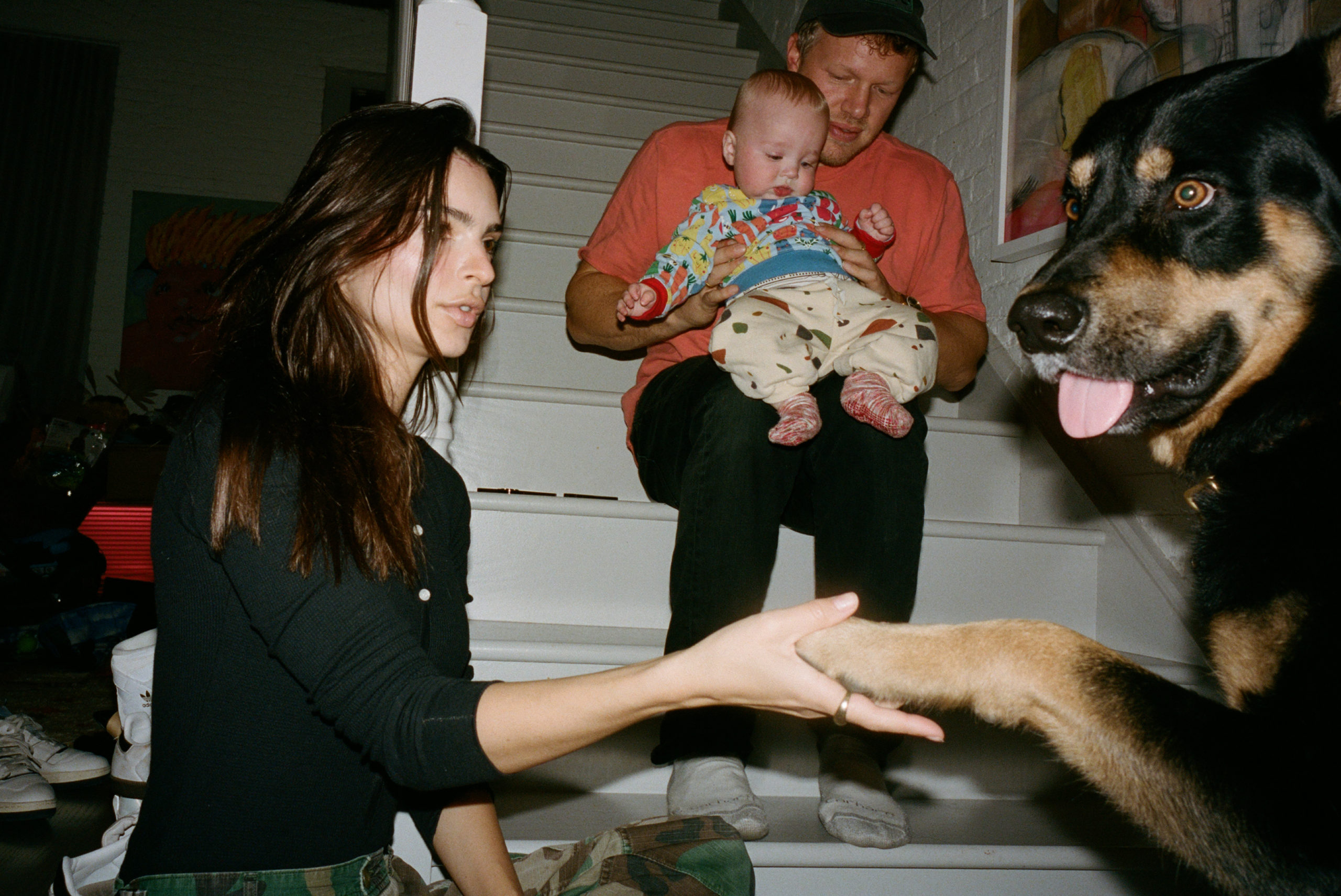


No comments:
Post a Comment